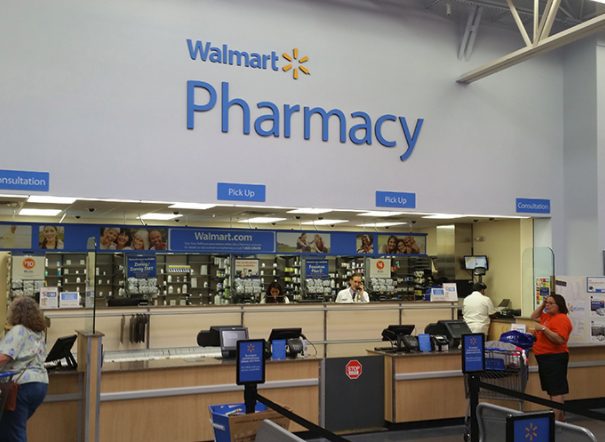Walmart is in preliminary talks to purchase health insurance company Humana, according to a report from The Wall Street Journal. While specific terms of the deal are not known, it would be bound to transform the relationship between retail and health care, especially as insurance and drug costs continue to rise.
Over the past year, there has been plenty of activity to suggest that this a direction Walmart desires to take. CVS Health acquired Aetna, the third-largest health insurer in the U.S., for $69 billion excluding debt, in an effort to gain greater reach within the health care industry. The deal pushed millions of Aetna members toward CVS pharmacies, walk-in MinuteClinics and home services, while at the same seeking to deliver more transparency to the relationship between pharmacy benefit managers (PBMs) and drug manufacturers.
This new dynamic between the retail and health care industries has been kickstarted by various consolidation efforts. In early 2017, federal courts blocked two health insurance megamergers due to antitrust concerns: a $37 billion Aetna-Humana deal and a $48 billion Anthem-Cigna merger.
As these deals fell through, Aetna and Humana sought to pair up with companies outside their industry.With retailers such as Walmart and CVS involved in their business, the insurers would gain additional access to consumer data from the retailer’s pharmacy clinics, with the potential of leveraging it to negotiate lower drug prices.
Like CVS, Walmart would gain membership data that could deepen its relationship with patients, especially a key growing demographic — seniors. Humana is the second-largest provider of the private Medicare plans known as Medicare Advantage. Walmart has a vast pharmacy business that would benefit from the insurer’s presence, with locations in most of its roughly 4,700 U.S. stores and in many of its Sam’s Club warehouse locations. On top of these pharmacies, the retail giant has some primary care clinics and recently said it would work with a major laboratory company to begin offering lab-testing services in some stores.
Walmart already has purchased health care for its employees directly from providers in six different regions, bypassing the insurers who usually negotiate with doctors and hospitals. This process is designed to cut out middlemen and drive down costs in the same way that the retail giant’s bargaining has brought down prices for shoppers.
Walmart’s potential jump into health care also comes at a convenient time — two months after Amazon partnered with Berkshire Hathaway and JPMorgan Chase to create an independent health care company for the three companies’ U.S. employees.
Amazon has shown increasing interest in the pharmacy-services industry, already having obtained pharmacy licenses in select states. The retailer has told regulators it will use the licenses to sell medical devices and supplies rather than drugs, and recently expanded its discounted Prime program to beneficiaries of Medicaid.
While Walmart has been on somewhat of an acquisition spree since buying Jet.com in 2016 for $3.3 billion, a Humana deal would certainly be Walmart’s largest transaction by far, eclipsing its 1999 acquisition of UK grocer Asda Group PLC for $10.8 billion.













